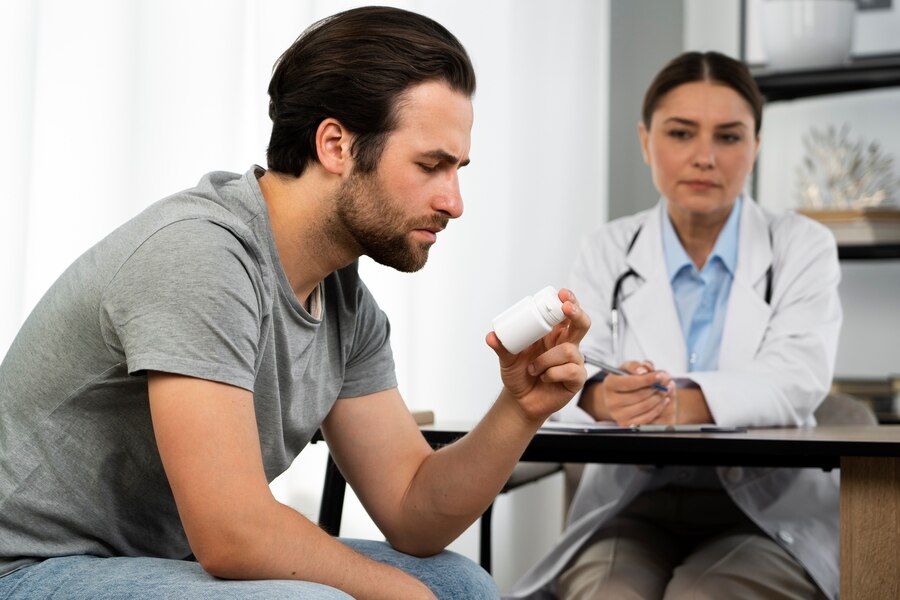Navigating the healthcare system can be a daunting experience, especially when it comes to something as nerve-wracking as drug testing and screening. Whether you’re a concerned parent, an employee complying with workplace policies, or someone seeking personal health information, understanding the process of screening at urgent care centers can alleviate much of your anxiety. This guide will walk you through ten facts, demystifying the process.
Understanding the Need for Drug Screening

Drug tests are vital tools, from ensuring workplace safety to monitoring health conditions. At urgent care centers, they handle this process with professionalism and discretion. Remember, these tests are there for your safety and well-being. Each situation is unique, and the staff is trained to cater to these diverse needs. Whether pre-employment screening, routine chronic checks, or sporadic assessments, they understand the gravity and confidentiality of each case.
Preparing for Your Visit
Preparation is vital when visiting an urgent care center for drug screening. First, ensure you have the necessary documents, such as identification and referral forms. Also, understanding any pre-test requirements, like fasting or avoiding certain medications, is crucial. It’s normal to feel anxious, but remember that the staff at urgent care centers are there to help.
Don’t hesitate to ask questions or express concerns about the test.
Types of Drug Tests Available

Urgent care centers offer a range of drug screening options to suit different requirements. The most common types include urine, blood, saliva, and sometimes hair follicle tests. Each type has its specific purpose, with varying detection windows and substances they can identify.
Urine Drug Test (UDT)
Purpose: Detects recent use of drugs such as marijuana, cocaine, opiates, amphetamines, and PCP.
Window of Detection: Typically 1-3 days, but can be longer for chronic users.
Advantages: Non-invasive, quick results, and a wide detection range.
Blood Drug Test
Purpose: Identifies active substances in the bloodstream, including prescription medications and illicit drugs.
The window of Detection: A few hours to 1-2 days, detecting more recent usage.
Advantages: High accuracy and can determine the exact level of drugs in the system.
Saliva Drug Test
Purpose: Detects use of drugs such as marijuana, cocaine, opiates, amphetamines, and benzodiazepines.
Window of Detection: Generally, it is 24-48 hours, suitable for detecting recent use.
Advantages: Non-invasive, easy to administer, and difficult to degrade.
Hair Follicle Drug Test

Purpose: Provides a longer detection window for drug use, including many of the most commonly abused drugs.
Window of Detection: Up to 90 days, showing a pattern of drug use over time.
Advantages: Long detection period and can provide a history of drug use.
Breath Alcohol Test
Purpose: Commonly used to detect alcohol consumption.
Window of Detection: Detects current levels of alcohol in the bloodstream.
Advantages: Expect immediate results, non-invasiveness, and acceptance for various legal and employment purposes.
Knowing which test you need helps you prepare better for the visit, so make sure you understand all the differences in the tests and their applications.
Confidentiality and Privacy
Urgent care centers uphold strict privacy and confidentiality standards. Your test results and personal information are protected under healthcare laws, so you can trust that your visit and screening outcomes will be handled with the utmost discretion. The staff are trained to maintain confidentiality, ensuring your privacy at every step.
The Role of Qualified Professionals
Qualified healthcare professionals conduct drug screening at urgent care centers. These individuals are trained to administer tests accurately and provide support and information throughout the process. Their expertise ensures that the tests are reliable and the results are valid, giving you peace of mind about the accuracy of the screening.
Understanding Wait Times
One of the advantages of urgent care centers is that they typically have shorter wait times compared to other medical facilities. However, wait times can vary based on factors like the time of day and the specific center’s patient volume. It’s a good idea to call ahead or check online for current wait times to help you plan your visit more effectively and reduce unnecessary stress.
The Testing Process
Depending on the type of test, you might be asked to provide a urine sample, undergo a blood draw, or give a saliva sample. The professionals at the center will guide you through each step, ensuring the process is as comfortable as possible. Remember, these procedures are routine and conducted daily at urgent care centers, so you’re in experienced hands.
Interpreting the Results
Urgent care centers provide the results and offer explanations and any necessary follow-up steps. Negative results indicate no detectable drug substances, while positive results might require further investigation or confirmation tests. The staff can also guide you on what the results mean for your specific situation, whether for employment, legal, or personal reasons.
Aftercare and Support

Post-test support is an essential aspect of drug screening at urgent care centers. Whether you need advice on the next steps following your results or have concerns about what they mean for your health, the staff is there to assist. This support can be invaluable, especially if the results are unexpected or you’re navigating the implications of the test for your job or legal situation.
Building a Relationship with Your Urgent Care Center
Developing a rapport with your local urgent care center can be beneficial for future healthcare needs. These centers provide a wide range of services beyond drug screening, and establishing a relationship means you have a trusted place to turn to when health concerns arise.
Conclusion
Visiting an urgent care center for screening doesn’t have to be an intimidating experience. Armed with these ten facts, you’re better prepared to navigate the process confidently. Remember, urgent care centers are designed to provide efficient, professional, and compassionate care. Whether you’re there for drug screening or other health concerns, you can trust that your needs will be met with expertise and understanding.
Read Also:




























